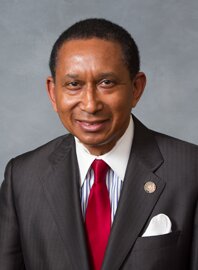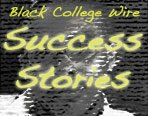| War on Voters Continues in N.C. |  |
 |
 |
| By Matt Phillips -- Black College Wire | |
|
The South still toils. Down here, where the sun beats hard and the tea drinks sweet, a shameful, oppressive voter disenfranchisement history will not die. This month, Republican senators introduced state legislation that threatens to undermine student and minority voting rights in North Carolina. N.C. Senate bills 666, 667 and 721 call for a comprehensive overhaul of basic voting rights. Proposed changes include a voter identification card requirement, drastically reduced early voting days, elimination of same-day registration voting and a tax hike for parents whose children register to vote at their respective colleges and universities. All three bills have been referred to the Committee On Rules and Operations of the Senate — where they will be reviewed — and possibly revised — before a Senate vote. Voting rights activists say the bills were drafted to diminish student and minority voting power across North Carolina. Sanyu Gichie, a community organizer general with the N.C. Student Power Union, said SB 666 and SB 667 would disenfranchise student voters — and that that’s the Republican-intended result. As the bills are written, if a student from Henderson County is enrolled at UNC-Chapel Hill or N.C. Central University, he or she wouldn’t be able to vote in Durham or Orange Counties. That is, unless the student’s parents decided to give up the $2,500 tax deduction to which they are entitled for having a dependent. Gichie, a political science and public policy sophomore at UNC-Chapel Hill, said that’s a clever way for Republican lawmakers to dilute the influence of university students, who tend to be progressive voters. "That’s the plan of the bill," Gichie said. "University students want more progressive policies." The primary sponsors of the bills are Republican Senators Bill Cook, Ronald Rabin and Norman Sanderson. Republican Sen. Dan Soucek co-sponsored both bills. Cook said students have a right and privilege other citizens don’t when they are given the option of voting at home or at school. "All I’m trying to do is make it fair," Cook said. "They [students] skew the results of the election. And then they go home." 
NCGA
Democratic State Sen. Floyd McKissick
The bills are only meant to equalize the voting processes in the state, according to Rabin’s aide. She said students have too many options when it comes to voting. They can vote at home, school, fill out an absentee ballot or vote early. Making them choose between home or school is a fair requirement, according to Salem. Democratic Sen. Floyd McKissick Jr. of Durham and Granville counties said the legislation has nothing to do with fairness. "We have legislation [being introduced] that’s directly intended to reduce the participation of students in the elections of the state," McKissick said. He said the legislation targets students because they are progressive thinkers and voters. The bills are designed to silence that populace. "If students don’t want to be disenfranchised they need to rally and protest. They need to let legislators know they will not be silenced," he said. McKissick said parents deserve the $2,500 tax deduction if they support the dependent financially –— it should have nothing to do with where the dependent decides to vote. Salem said the bills could be revised in committee. She hinted that the language concerning the deduction could be removed. But that would still leave a substantial reduction in early voting days in SB 666, dubbed the "Election Law Changes" bill. Salem said the elimination of early voting days — the bill would slash the early-voting period by seven days — is all about cost, and nothing else. "We’ve got to cut some costs. Doing this is better than taking meals and jobs off the table," she said. Early voting costs $98,000 per day, and "that cost is incurred solely at the local level," Salem said. Eliminating seven days would save approximately $686,000. Cook said he watched early voting closely last election. The first week was busy and the subsequent weeks were sparsely used, according to him. "It said to me we’re just wasting money with so many days," Cook said. But early voting is incredibly popular in N.C., and getting rid of those days would disproportionately affect liberal voters. In 2012, more than 2.7 million people voted early in N.C., 47.6 percent of whom were registered Democrats. Only 31.5 percent were registered Republicans, according to the U.S. Elections Project at George Mason University. "If you were to poll residents here in North Carolina, they like early voting," McKissick said. "Anything we can do to make it easier for people to vote — all the better." McKissick has introduced, along with two other senators, SB 708, named after 1930s civil rights pioneer Ella Baker. The Ella Baker Voter Empowerment Act would expand hours of operation for early voting sites, allow for online voter registration and support increased training for poll officials. The contrast in legislation is stark. SB 708 seeks to expand the electorate. Senate bills 666, 667 and 721 would shrink the electorate. SB 721, the so-called "Election Omnibus" bill, was introduced by Republican Sen. E.S. Newton. It would reduce early voting to six days and require convicted felons who have served their sentences to wait an additional five years before voting. Another portion of the bill calls for a voter ID requirement. A January report from the N.C. State Board of Elections found that 612,955 registered voters may not have a valid, state-issued identification card. That’s 9.25 percent of the state’s electorate. The report compared DMV records to a database of active and inactive voters. According to the report, 31 percent of those who don’t have identification cards are black. Republicans have insisted that the voter ID requirement would ensure the validity of elections in North Carolina. But McKissick said only been 44 cases of voter fraud have been prosecuted in the state since 2008. According to the Brennan Center for Justice, individual voter fraud is extremely rare in the United Sates, and doesn’t influence a popular election result anyway. The Center’s website points out that voter fraud allegations suit a particular party agenda — and nothing else. Sens. Newton, Sanderson and Soucek had not returned phone messages at press time. Matt Phillips is editor-in-chief of The Campus Echo, the North Carolina Central University student newspaper, which originally published this article. " width="77" height="22" /> |
|
| Posted Apr. 18, 2013 |
| < Prev | Next > |
|---|



